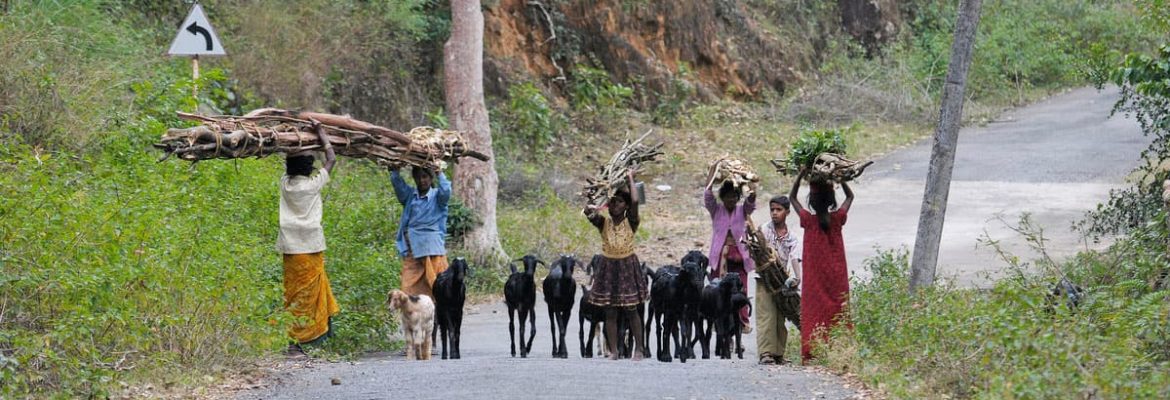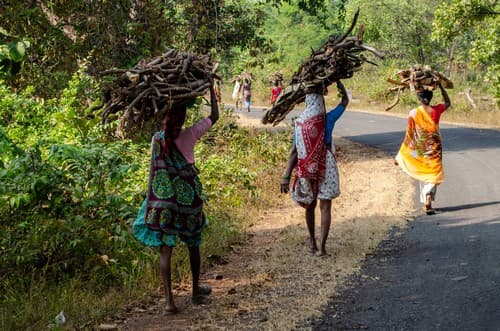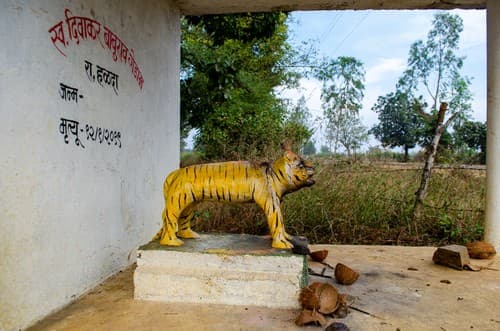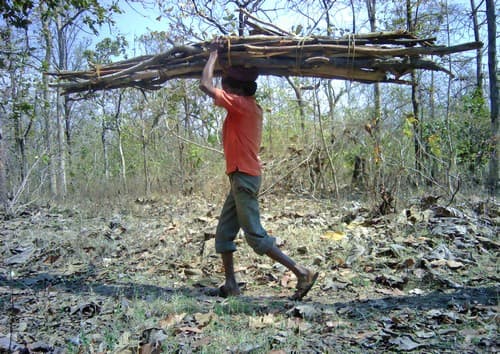The Resilient Futures (earlier Conservation Behaviour) department was set up to gain insights on conservation action through the understanding of social drivers of human behaviour, that have a significant bearing on the natural environment.

The team comprises social scientists from a variety of disciplines, and adopts frameworks of economics, psychology, sociology and anthropology to gather data-driven inputs for community-based climate action.
The Resilient Futures (earlier Conservation Behaviour) team is currently working on the following four projects:
Heater of Hope
Nearly a decade of tiger-monitoring studies in the Greater Tadoba Landscape in Central India by our Conservation Research department have helped us unambiguously identify bottlenecks in the region’s wildlife corridors, and also the villages that have a high potential of negative interactions with tigers.
Subsequently, extensive economic and psychosocial studies have helped us identify one of the key drivers of forest degradation – sustained fuelwood extraction.
Women have to walk several kilometres to bring firewood from the forest. Apart from the physical hard work, there is always a possibility of encountering a wild animal (left). Memorial of a man killed by a tiger (right). (Both photos by Rizwan Mithawala/WCT)
Fuelwood extraction leading to forest degradation affects the region’s water and ecological security, and eventually economic development. People’s movement in forests for wood collection also puts them at risk of encountering wildlife such as large carnivores, potentially causing conflict. Studies have also highlighted the negative health consequences of firewood usage, especially on women and children. A large part of the task of manual firewood collection for domestic usage is shouldered by women, adding to their drudgery.
Our interdisciplinary research has led to the development and large-scale adoption of a biomass-fuelled, energy-efficient water heater for households, that is reducing firewood consumption, forest degradation, human-carnivore conflict, respiratory health risk and the drudgery of women.
The success of this project has also won WCT the UNDP Mahatma Award for Biodiversity 2023.

WCT team receiving the UNDP Mahatma Award for Biodiversity 2023 in September 2023.
Fiscal Principles: An Impetus for Natural Capital
In India, current policies implemented by the Finance Commission mark devolution of funds based on forest cover. There is no incentive for any state government, local bodies, communities, and individuals to conserve other equally critical ecosystems like grasslands, wetlands, and deserts.
The project aims to harness public finance as a mechanism to safeguard not just natural ecosystems, but also the development needs of communities that live in and around these ecosystems; and expand the ambit of the existing devolution formula suggested by 15th Finance Commission, to create incentives for maintaining non-forested ecosystems such as grasslands, scrublands, wetlands and deserts, instead of focusing solely on ‘green cover’.
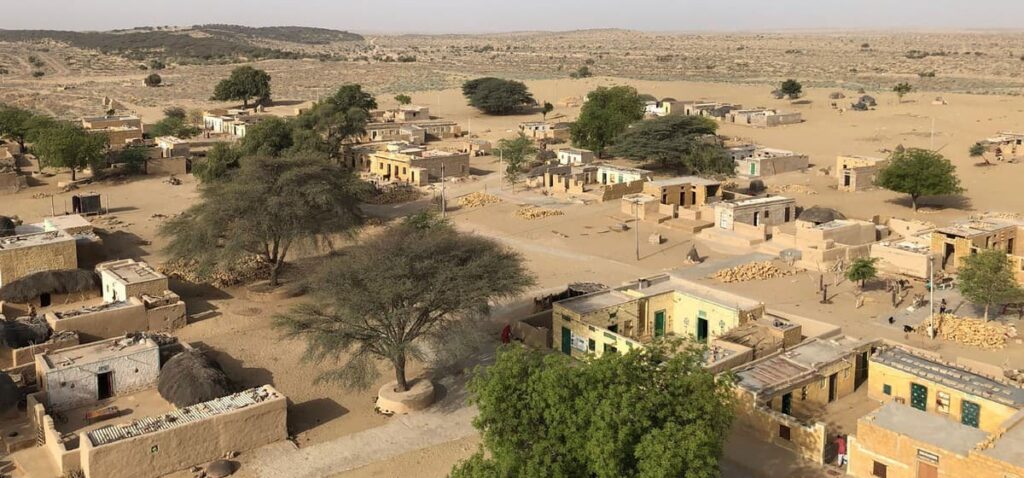
WCT will provide evidence-based policy recommendations on fund devolution that incentivises conservation of non-forest ecosystems such as deserts, grasslands, etc. (Photo by Aniket Bhatkhande/WCT)
To achieve these objectives, the project will provide evidence-based and scientifically robust policy recommendations to the Finance Commission on fund devolution that incentivises environmental protection and promotes it as an allied objective.
Assessing Work Motivation of Forest Guards
Forest guards in India protect some of the world’s most valuable ecosystems and the last refuges of various endangered species. Their job profile entails physically challenging and psychologically demanding working conditions as they carry out the last mile implementation of protection policies and law enforcement, with only one to three daily wage workers to assist them.
Since the morale of forest guards is crucial in ensuring the protection of tiger reserves, it is critical to understand, maintain and improve their work motivation and psychological well-being.

WCT’s conservation psychologist interviewing a forest guard in Panna Tiger Reserve, Madhya Pradesh.
The team works in collaboration with State Forest Departments to understand the work motivation and wellbeing of frontline forest staff. Tools of industrial psychology are used for understanding their work-life and culture, in order to inform policy for improving their working and living conditions.
The project has resulted in the launch of Human Resource Management training programmes for Range Forest Officers (RFOs) of tiger reserves.
Preventing Human-Wildlife Conflict using Artificial Intelligence (AI)
The team has developed AI-based predictive models for human-wildlife conflict in Maharashtra, in collaboration with the Google’s AI for Social Good programme. The predictive models have helped identify future conflict hotspots. Villages around these hotspots have been identified as ‘sensitive’, which has facilitated the expansion of the government’s the Shyama Prasad Mukherjee Jan Van Vikas Yojana to more than 100 villages in the district.
A local collecting fuelwood from the forest (left) and a tiger (right) caught on WCT’s camera traps in the Bramhapuri Forest Division, Chandrapur district, Maharashtra. Human-tiger conflict is an escalating problem in this region. (Photos: WCT/Maharashtra Forest Department)
Your donations support our on-ground operations, helping us meet our conservation goals.
Related Links
- Of Human Mind, Societies and Wildlife Conservation – An Interview
- Parley with the Mind
- The Guardians of our Forests
- Donors

